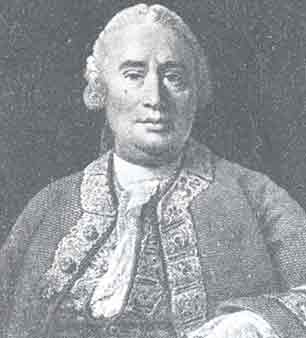People
Philosophers
David Hume (1711-1776)
David Hume (1711-1776) [Plato]. Scottish philosopher and historian. Educated at Edinburgh, he lived in France, where he finished his first philosophical work.
In philosophy Hume pressed the analysis of John Locke [People] and George Berkeley [People] to the logical extreme of skepticism for which he is famous. He could see no more reason for hypothesizing a substantial soul or mind than for accepting a substantial material world.
A complete nominalist in his handling of ideas of material objects, he carried the method into the discussion of mind and found nothing there but a bundle of perceptions. Causal relation derives solely from the customary conjunction of two impressions; the apparent sequence of events in the external world is in fact the sequence of perceptions in the mind.
From this statement Hume argued that our expectation that the future will be like the past (e.g., that the sun will rise tomorrow morning) has no basis in reason; it is purely a matter of belief. However, he also asserted that such theoretical skepticism is irrelevant to the practical concerns of daily life.
Hume’s attack on rationalism is also evident in his two works on religion; in these he rejects any rational or natural theology.
David Hume (1711-1776)

04-22-2004